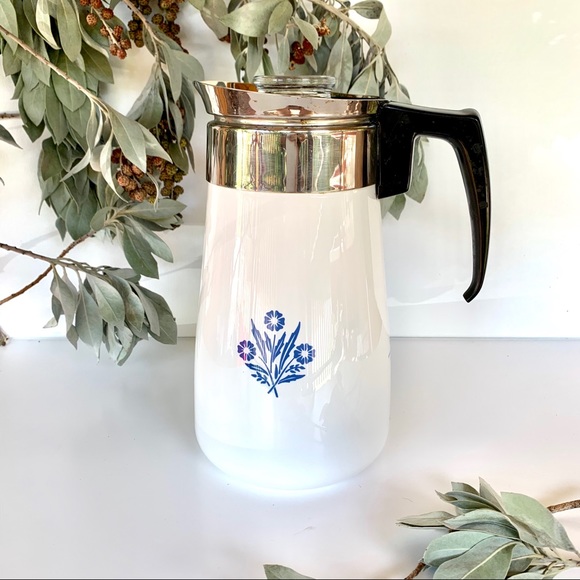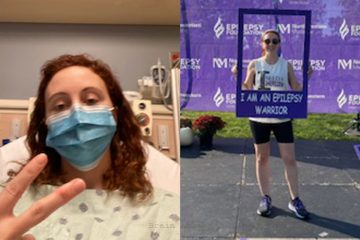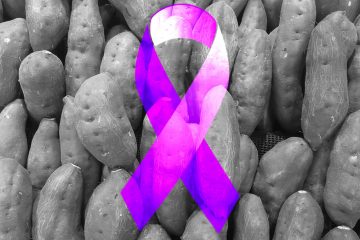The great enemy of truth is very often not the lie, deliberate, contrived and dishonest, but the myth, persistent, persuasive and unrealistic.
John F. Kennedy
In 1992, while the world was hypnotized by Billy Ray Cyrus’s Achy Breaky Heart, I had been already diagnosed with Epilepsy for about a year. A junior in High School, I was already a true pioneer in the field of self-distancing. As the stress of my weekly tonic-clonic seizures set in, I became closed-off. Up until then I really never had to study in high school. Now, even classes in which I once showed an exceptional aptitude, became a struggle. Whether it was from the anti-epilepsy-drugs (AEDs), or just being a teenager, I’ll never know, but I was constantly living in a fog, irritable, and confused. When I was told by my mother that I would be visiting my grandparents’ house for Sunday dinner rather than staying home to sleep away the effects of a recent seizure, I was disappointed.
My grandparents lived in the same house in San Diego to which my grandfather moved his family after realizing he just couldn’t stand another winter in Buffalo, New York after returning from fighting in the Battle of the Bulge. It was a perfect model of an idyllic home that one might expect to see in a black-and-white documentary about the American Dream.
I sat alone, under protest, in the den on a couch that long ago lost its ability to withstand the weight of even the tiniest of humans. As my body sank, my feet lifted into the air. I looked around trying to occupy my time as my brother played outside and my mother visited with her parents. Inside, the home was furnished with the best that one could buy, in 1955. Time had stopped for my Grandparents right around the time that Jonas Salk developed the vaccine for Polio. I certainly believe that my grandparents believed that they were living witnesses to the decline of American society. (Who knows? Maybe they were.) Throughout their home, they had placed icons and symbols that supported their belief. For example, a framed, long-since-yellowed newspaper article containing a dressing down of President Kennedy’s decision to not send an American military invasion force into Cuba during The Bay of Pigs hung next to a graying print of Leonardo Da Vinci’s The Last Supper over my grandfather’s prized piano.

Because my grandfather believed it was divine intervention that survived through the horrors of War War II, there was also a crucifix placed predominately in each room. While I sat staring at the bronze statue attached to the wooden cross, my grandmother, still wearing her church pearls, entered the room. She carefully carried a small plate of cookies and made no greeting to me. Instead, she carefully placed the china on the wooden coffee table in front of me. She gave me a silent, stern look when I reached for a cookie. Then seemingly to suddenly remember something, she left the room.

She returned only moments later carrying a coffee percolator in one hand and guiding a Priest in the other. She introduced the man to me, placed the percolator next to the plate of cookies, looked around the room to verify that everything was set how she wanted it, gave me a look that warned me to be on my best behavior, smartly nodded, and left the room. I was left alone in the Den with the Priest.
RELAX, it isn’t that type of story.

I easily recognized that the Priest was someone of importance because he delicately carried an empty teacup and saucer that my grandmother kept packed away on the top shelf of a display case never to be touched by family members as the china were only to be used to regal dignitaries. In fact, I hadn’t seen it ever used before and would never see it used again.
“David?”, he asked.
After rocking back and forth for a few seconds, I built up enough momentum to finally propel myself from the sofa to shake the man’s hand.
At the time, my seventeen-year-old-self thought the Priest was so OLD. I now estimate he was in his late forties. He was taller than I by a few inches, but his shoulders were narrow. His handshake was firm and he delivered it with kind grey eyes and a smile that smoothened the faint wrinkles that surrounded just the edges of his lips.
We made pleasant banter as he introduced himself as clergy that belonged to the church to which my grandparents attended.
We moved to stand closer to the sofa. As he sat down, the sofa failed to support his wait and he sank. The teacup went flying from the saucer into the air. The Priest reacted quickly and fumbled to catch it. He looked back at me in shock that he had actually caught the cup. The moment perfectly broke the ice, and he placed the cup and saucer on the table safe and sound.
The Priest was actually a nice guy. We had a short, but pleasant conversation. I remember that we talked about the prospects of the new coach of the San Diego Chargers, Bobby Ross. He finally asked, “You know, David, you seem to be a bit sad. Is there anything wrong?”
I was a bit caught off guard by the question. Up until that point, I had contributed to a wonderful conversation. A lot of troubles I was experiencing felt far away. The question suddenly dragged me back to reality.
I think the Priest saw my hesitation.“I’m here if you want to talk about it. It’s kind of my job.” He smiled, leaned closer, and boasted “I bet you would be surprised by the things that people tell me.”
“You know your grandmother is quite worried about you. I see her every morning. She lights a candle for you.”
I recognized his strategy immediately. It was a favorite with my grandparents. Now that pleasantries had failed, he was moving on to guilt.
“I keep telling her to not do that. I mean, not to get all worked up about me. I’ll be fine, in the long run. I think the praying and candles is really making her feel better, not me.”
“Sure. Sure. That’s one way of looking at it; even a healthy way. She’s just worried about you. She says you’re always sad. Your grades are plummeting?”
“It’s just these drugs.”, I lamented.
The Priest leaned back. It was obvious that he was now getting somewhere. He peered at me through the bottom of his glasses. After a long while, I nervously ran my hand through my hair. He then leaned close enough to make me uncomfortable and looked me straight in the eye. “Tell me, David. Are you and your friends experimenting with THE drugs?”
I turned away from him. “No. God damn it, no”. I realized what I had just said and turned back, “Sorry.”
He leaned to pick up the cup and pour himself some coffee.
“I wish everyone would stop doing that.”, I said.
“Do what, exactly?”
“I’m taking the drugs that the doctor gave to me. Everybody assumes that I’m buying it from some crackhead, you know?”
Still leaning over the coffee table, the Priest stopped what he was doing, and looked at me. “A doctor?”
“Yeah, a doctor. Of course a doctor. I’ve been having these seizures and the doctor gave me these pills. I keep telling my Mom that the meds are too much. — And guess what! — My brain is still having the stupid seizures.”
The Priest grabbed a cookie from the plate, left his steaming cup of coffee on the table, and uncomfortably leaned back into the sofa.
“Do your grandparents know about your seizures?” He stuffed the cookie into his mouth half expecting the answer.
“Of course. My grandmother was there when I had one. She FREAKED when I collapsed and started convulsing.”
The Priest suddenly slapped his knees with both hands and said, “Well, this has certainly been enlightening. It was very good to meet you, young man.” He stood up. “I’m certainly sorry to hear what you are going through.”
I rocked out of the sofa and responded softly, “Thanks.”
The Priest extended his hand to shake mine. Placing his other hand softly on my shoulder, he continued, “All I can say is that you keep fighting. Epilepsy certainly is a struggle. May God bless you.”
He then walked into the adjoining room where my mother and grandparents congregated around a small Formica-tiled kitchen table.
I moved closer to the open doorway, sat on the floor with my back to the wall, and sat to eavesdrop.
“Is he cured?”, my grandmother asked hopefully.
“Cured?”, the Priest confusingly asked. “He seems to be just doing fine…. under the circumstances”
“What is this?” My grandfather was annoyed at the misunderstanding. He suddenly realized to whom he was speaking and added, “Sorry, Father.”
“Mr. Karpinski. I was under the impression I came to talk to a troubled young man.”, the Priest politely answered.
My grandfather implored, “But we talked to [name redacted] and he said that you could do something to help with his affliction.”
The Priest chuckled and scoffed, “Like what? An exorcism or something like that?” Realizing that no one else was laughing with him, he quickly cleared his throat and stopped.
“Dad you didn’t”, my mother sighed with an embarrassed soaked voice.
“Well, what are we supposed to do? I mean, your mother is worried sick.”
There was a quick squeaking of the chair against the linoleum floor.
I suddenly realized that there was a true chance that I was going to get caught eavesdropping. As quickly as possible, I jumped to land on the sofa.
The Priest entered the room and gave me a knowing smile. I wasn’t fooling anyone. He obviously saw that I was listening in on the conversation. He grabbed his teacup of coffee and the percolator and brought them back to the other room. I quickly resumed my post guarding the open doorway.
Through the clinking of china, it sounded like the Priest was pouring coffee for everyone at the table. Then there was more squeaking on the linoleum floor.
The Priest now spoke louder as he knew I was listening, “Here’s the thing, Mr. and Mrs. Karpinski. Your grandson is struggling with Epilepsy. It is a pretty common disease. The thought that I, or anyone other than a doctor, can help him is truthfully in a word, ABSURD.”
I immediately smirked but stopped after I heard my grandmother start to sob.
My mother continued where the Priest left off, “Look Mom we’re doing the best that we can.”
Even now, I don’t fail my grandfather. He was looking out for his wife’s best interests. It is something I would do in an instant. It’s human nature when faced with an insurmountable problem to break into smaller problems that one can easily solve. Divide and conquer.
One person cannot prevent a menacing pandemic from infecting the world, but one can solve a smaller surmountable problem by rationally buying the necessary supplies to ensure one’s family’s safety. In his short and flawed research, my grandfather had thought he found an immediate solution. A silver bullet as it were. Who wouldn’t jump at that chance? I just wish that my grandparents were just given the correct information sooner and were not led down a path with falsities and myths.
After that day, my grandmother continued to pray for me, though the pressure of her actually solving my problem was released from her everyday life. My grandfather shifted his worries back to his thoughts about the ever-sinking values of the American culture.



1 Comment
데일리픽 · September 25, 2020 at 8:45 AM
Hi there, You have done an excellent job. I’ll certainly digg it and personally recommend to my friends.
I am sure they’ll be benefited from this website.
Comments are closed.